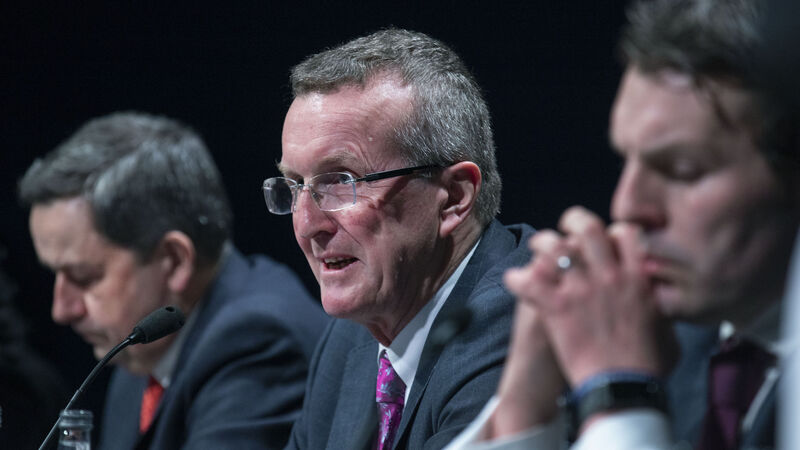Farmers want a ban on the below-cost selling of food

IFA President Tim Cullinan addressing the 67th Annual General Meeting of the Irish Farmers Association in the Mansion house in Dublin today where he warned against creating a global food emergency from trying to solve the climate emergency. Picture: Finbarr O'Rourke
The President of the Irish Farmer's Association said a ban on the below-cost selling of food similar to the one introduced for alcohol should be introduced immediately as he hit out at Ireland's retailers saying they are pushing food producers to the "brink of wipeout".
Speaking at the IFA's AGM in Dublin today Tim Cullinan said such a ban should form part of the upcoming legislation that will see the appointment of Ireland's first food regulator.










